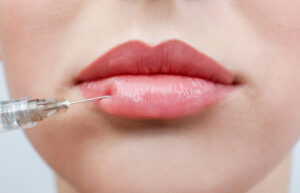Stress affects our bodies in ways that we don’t always realize. It causes changes in hormones, neurotransmitters, and other chemicals in the brain. These chemical imbalances can cause inflammation, which leads to redness, swelling, and irritation. This can result in breakouts, rashes, and even scarring. In fact, it has been linked to skin problems such as acne, eczema, psoriasis, rosacea, and even wrinkles. Read on to learn How does Stress affect your skin? And what can you do about it?
The Mind-Skin Connection
Our skin is the major organ in our bodies. It protects us from outside influences such as coldness, warmth, radiation, chemicals, and so forth. It also helps regulate internal processes like digesting food, metabolizing nutrients, maintaining immunity, etc. The skin consists of several different types of tissues, from the outermost epidermal layer to the innermost hypodermal layer.
It has been proven by many studies that there is a connection between our mind and skin. Our thoughts affect how we feel about ourselves and how we look. For example, if you think you are ugly or unattractive, then chances are you will be more likely to have acne breakouts. On the other hand, if you think you’re beautiful, you’ll probably have less acne.
According to research, stressful situations may lead to breakouts or rashes. A study showed that when people get anxious, they release hormones called “cortisol.” Cortisol has been linked with inflammation, which can lead to skin conditions like acne.
How Stress Causes Acne
The stress hormone cortisol causes acne by increasing oil production in the skin. Cortisol also makes us feel tired, irritable, and hungry. When we overeat sugar, our bodies produce more cortisol, leading to increased oil production.
How Stress Affects Your Undereye Area
Stress causes under-eye bags because when we feel stressed, our body releases adrenaline into our bloodstream, making us tense and nervous. This leads to increased heart rate and breathing, which increases blood flow to the face causing dark circles around the eyes.
Dry skin and Stress
Stress causes us to sweat excessively, which leads to dehydration. This causes our skin to become dehydrated and irritated. In addition, it causes inflammation due to the secretion of hormones such as cortisol and adrenaline. The body releases these chemicals when we feel stressed out, which leads to increased blood flow to our skin. This results in redness, swelling, itching, and other symptoms associated with eczema.
Stress and Premature Aging
Stress causes premature skin aging due to the release of cortisol into the body. Cortisol is a hormone produced when we feel stressed out. When our bodies produce too much cortisol, it leads to inflammation which damages collagen and elastin fibers. This results in wrinkles and sagging skin.
Tips to Ease the Effects of Stress on Your Skin
There are many ways you can do to lessen the amount of Stress in your life, which will have a positive effect on your skin. But, first, it is crucial to identify and avoid any triggers that might contribute to your stress levels.
Try out different stress management techniques
There are many different stress management techniques that you can try out to see what works best for you. Some popular methods include yoga, meditation, aromatherapy, and deep breathing exercises. If you’re feeling overwhelmed by Stress, it is important to have some time for yourself to relax and feel refreshed. Experiment with different stress management techniques until you find something that goes well for you and help you to feel more relaxed and at ease.
Be sure to get a good night’s sleep
Getting a good night’s sleep is essential to feel energetic and refreshed. Try to set a schedule and stick to it as closely as possible. Caffeine and alcohol can disrupt sleep, so avoid them before bed. Establish a calming bedtime routine to help you relax at night.
Exercise Daily to Manage Your Stress
Exercise is an excellent way to relieve Stress. It assists in releasing endorphins, which have mood-boosting properties. Exercise also helps to regulate the body’s stress response. Therefore, when you exercise regularly, your body becomes better at managing Stress.
Keep a few things in mind when trying to use exercise to manage your Stress. First, make sure that you’re getting enough exercise. Regular moderate exercise is the key to managing Stress. Second, find an activity that you enjoy. You’re less likely to stick with the activity if you don’t enjoy it. And third, be consistent with your exercise routine. Inconsistent exercise can lead to more Stress, so you must find a routine that you can stick with.
Seek a Professional Therapist to Manage Your Stress
Sometimes it’s easy to feel like Stress is taking over. If you’re struggling to cope with Stress and it’s impacting your quality of life, it may be time to seek professional help.
A therapist can help you healthily manage Stress and give you tools to deal with overwhelming feelings. You can consult your doctor for a referral to a therapist near you.
*Information in this article is not medical advice and may not be factually accurate. It is intended for entertainment purposes only. Consult with a physician before attempting any tips in this blog post and to get the most up to date factual data about any procedure or treatment.














